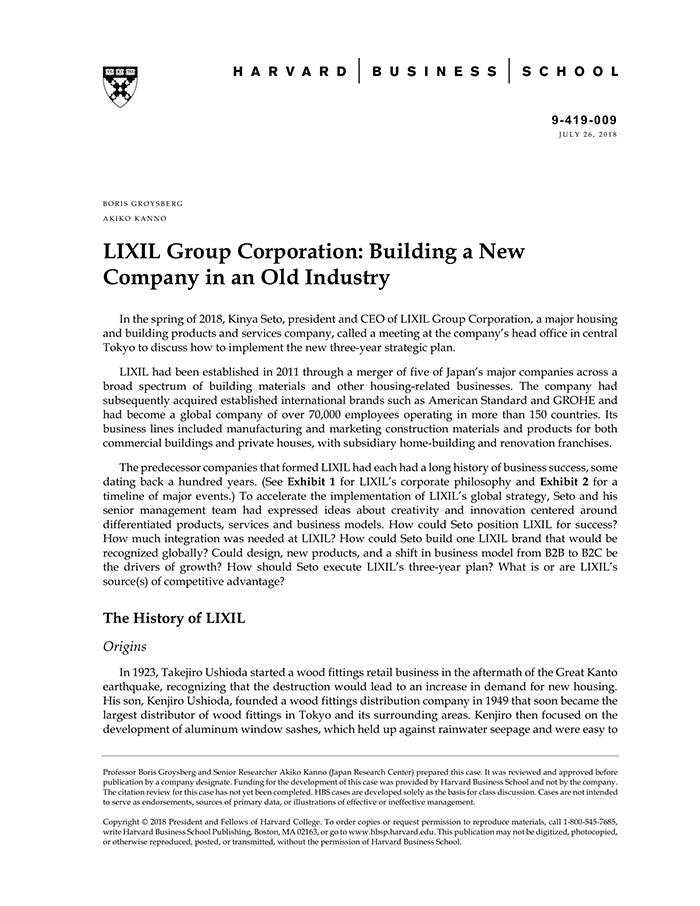LIXIL Group Corporation: Building a New Company in an Old Industry
受取状況を読み込めませんでした
In the spring of 2018, Kinya Seto, president and CEO of LIXIL Group Corporation, a major housing and building products and services company, called a meeting at the company's head office in central Tokyo to discuss how to implement the new three-year strategic plan. LIXIL had been established in 2011 through a merger of five of Japan's major companies across a broad spectrum of building materials and other housing-related businesses. The company had subsequently acquired established international brands such as American Standard and GROHE and had become a global company of over 70,000 employees operating in more than 150 countries. Its business lines included manufacturing and marketing construction materials and products for both commercial buildings and private houses, with subsidiary home-building and renovation franchises. The predecessor companies that formed LIXIL had each had a long history of business success, some dating back a hundred years. To accelerate the implementation of LIXIL's global strategy, Seto and his senior management team had expressed ideas about creativity and innovation centered around differentiated products, services and business models. How could Seto position LIXIL for success? How much integration was needed at LIXIL? How could Seto build one LIXIL brand that would be recognized globally? Could design, new products, and a shift in business model from B2B to B2C be the drivers of growth? How should Seto execute LIXIL's three-year plan? What is or are LIXIL's source(s) of competitive advantage?
【書誌情報】
ページ数:34ページ
サイズ:A4
商品番号:HBSP-419009
発行日:2018/7/26
登録日:2019/9/4


